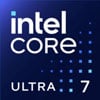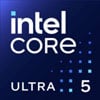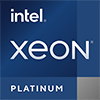
Intel Core i7-10700KF Benchmark, Test and specs
Last updated:
The Intel Core i7-10700KF has 8 cores with 16 threads and is based on the 10. gen of the Intel Core i7 series. The processor uses a mainboard with the LGA 1200 socket and was released in Q2/2020. The Intel Core i7-10700KF scores 1,347 points in the Geekbench 5 single-core benchmark. In the Geekbench 5 multi-core benchmark, the result is 9,268 points.

| Name: | Intel Core i7-10700KF |
|---|---|
| Family: | Intel Core i7 (298) |
| CPU group: | Intel Core i 10000 (43) |
| Architecture: | Comet Lake S |
| Segment: | Desktop / Server |
| Generation: | 10 |
| Predecessor: | Intel Core i7-9700KF |
| Successor: | Intel Core i7-11700KF |
CPU Cores and Base Frequency
The Intel Core i7-10700KF has 8 CPU cores and can calculate 16 threads in parallel. The clock frequency of the Intel Core i7-10700KF is 3.80 GHz (5.10 GHz). The number of CPU cores greatly affects the speed of the processor and is an important performance indicator.
| CPU Cores / Threads: | 8 / 16 |
|---|---|
| Core architecture: | normal |
| Cores: | 8x |
| Hyperthreading / SMT: | Yes |
|---|---|
| Overclocking: | Yes |
| Frequency: | 3.80 GHz |
| Turbo Frequency (1 Core): | 5.10 GHz |
| Turbo Frequency (8 Cores): | 4.90 GHz |
Memory & PCIeThe processor can use up to 128 GB memory in 2 (Dual Channel) memory channels. The maximum memory bandwidth is 46.9 GB/s. The memory type as well as the amount of memory can greatly affect the speed of the system. |
|
| Memory type: | Memory bandwidth: |
|---|---|
| DDR4-2933 | 46.9 GB/s |
| Max. Memory: | 128 GB |
| Memory channels: | 2 (Dual Channel) |
| ECC: | No |
| PCIe: | 3.0 x 16 |
| PCIe Bandwidth: | 15.8 GB/s |
Thermal ManagementThe thermal design power (TDP for short) of the processor is 125 W. The TDP specifies the necessary cooling solution that is required to cool the processor sufficiently. The TDP usually gives a rough idea of the actual power consumption of the CPU. |
|
|---|---|
| TDP (PL1 / PBP): | 125 W |
| TDP (PL2): | 229 W / 56 s |
| TDP up: | -- |
| TDP down: | 95 W |
| Tjunction max.: | 100 °C |
Technical details
The Intel Core i7-10700KF is made in 14 nm. The smaller the manufacturing process of a CPU, the more modern and energy-efficient it is. Overall, the processor has 16.00 MB cache. A large cache can greatly speed up the processor's speed in some cases such as games.
| Technology: | 14 nm |
|---|---|
| Chip design: | Monolithic |
| Socket: | LGA 1200 |
| L2-Cache: | -- |
| L3-Cache: | 16.00 MB |
| AES-NI: | Yes |
| Operating systems: | Windows 10, Windows 11, Linux |
| Virtualization: | VT-x, VT-x EPT, VT-d |
|---|---|
| Instruction set (ISA): | x86-64 (64 bit) |
| ISA extensions: | SSE4.1, SSE4.2, AVX2 |
| Release date: | Q2/2020 |
| Release price: | 349 $ |
| Part Number: | -- |
| Documents: | Technical data sheet |
Rate this processor
Benchmark results

The benchmark results for the Intel Core i7-10700KF have been carefully checked by us. We only publish benchmark results that have been created by us or that have been submitted by a visitor and then checked by a team member. All results are based on and fullfill our benchmark guidelines.
Screenshots:
Screenshots:
Cinebench 2024 (Single-Core)
The Cinebench 2024 benchmark is based on the Redshift rendering engine, which is also used in Maxon's 3D program Cinema 4D. The benchmark runs are each 10 minutes long to test whether the processor is limited by its heat generation.

|
AMD Ryzen 5 3600
6C 12T @ 4.20 GHz |
||

|
AMD Ryzen 7 PRO 4750G
8C 16T @ 4.40 GHz |
||

|
AMD Ryzen 9 3900
12C 24T @ 4.30 GHz |
||
|
|
Intel Core i7-10700KF
8C 16T @ 5.10 GHz |
||

|
AMD Ryzen 7 5700U
8C 16T @ 4.30 GHz |
||

|
Intel Core i7-10700K
8C 16T @ 5.10 GHz |
||

|
AMD Ryzen Threadripper 3990X
64C 128T @ 4.30 GHz |
||
Cinebench 2024 (Multi-Core)
The Multi-Core test of the Cinebench 2024 benchmark uses all cpu cores to render using the Redshift rendering engine, which is also used in Maxons Cinema 4D. The benchmark run is 10 minutes long to test whether the processor is limited by its heat generation.

|
AMD Ryzen 5 5600X
6C 12T @ 4.60 GHz |
||

|
Intel Core i5-1240P
12C 16T @ 4.40 GHz |
||

|
Apple M1 Pro (8-CPU)
8C 8T @ 3.20 GHz |
||
|
|
Intel Core i7-10700KF
8C 16T @ 5.10 GHz |
||

|
Intel Core i7-10700K
8C 16T @ 5.10 GHz |
||

|
AMD Ryzen 5 5500GT
6C 12T @ 4.40 GHz |
||

|
Intel Core i5-11600KF
6C 12T @ 4.90 GHz |
||
Cinebench R23 (Single-Core)
Cinebench R23 is the successor of Cinebench R20 and is also based on the Cinema 4 Suite. Cinema 4 is a worldwide used software to create 3D forms. The single-core test only uses one CPU core, the amount of cores or hyperthreading ability doesn't count.

|
AMD Ryzen Threadripper 3970X
32C 64T @ 4.50 GHz |
||

|
Intel Core i7-8086K
6C 12T @ 5.00 GHz |
||

|
AMD Ryzen 5 5500X3D
6C 12T @ 4.00 GHzNot verified |
||
|
|
Intel Core i7-10700KF
8C 16T @ 5.10 GHz |
||

|
Intel Core i7-10700K
8C 16T @ 5.10 GHz |
||

|
AMD Ryzen 7 PRO 4750G
8C 16T @ 4.40 GHz |
||

|
AMD Ryzen 9 3900X
12C 24T @ 4.60 GHz |
||
Cinebench R23 (Multi-Core)
Cinebench R23 is the successor of Cinebench R20 and is also based on the Cinema 4 Suite. Cinema 4 is a worldwide used software to create 3D forms. The multi-core test involves all CPU cores and taks a big advantage of hyperthreading.

|
AMD Ryzen 7 5800HS Creator Edition
8C 16T @ 3.80 GHz |
||

|
AMD Ryzen 7 6800HS
8C 16T @ 3.60 GHz |
||

|
Intel Core i7-6950X
10C 20T @ 3.50 GHz |
||
|
|
Intel Core i7-10700KF
8C 16T @ 4.90 GHz |
||

|
Intel Core i7-10700K
8C 16T @ 4.90 GHz |
||

|
AMD Ryzen 7 PRO 6850HS
8C 16T @ 3.60 GHz |
||

|
Intel Core i5-12400F
6C 12T @ 4.00 GHz |
||
Geekbench 5, 64bit (Single-Core)
Geekbench 5 is a cross plattform benchmark that heavily uses the systems memory. A fast memory will push the result a lot. The single-core test only uses one CPU core, the amount of cores or hyperthreading ability doesn't count.

|
Intel Core i5-1135G7
4C 8T @ 4.20 GHz |
||

|
Intel Xeon E-2234
4C 4T @ 4.80 GHz |
||

|
Intel Xeon E-2276M
6C 12T @ 4.70 GHz |
||
|
|
Intel Core i7-10700KF
8C 16T @ 5.10 GHz |
||

|
Intel Core i7-10700K
8C 16T @ 5.10 GHz |
||

|
AMD Ryzen 3 5425U
4C 8T @ 3.80 GHz |
||

|
Intel Xeon W-1250
6C 12T @ 4.70 GHz |
||
Geekbench 5, 64bit (Multi-Core)
Geekbench 5 is a cross plattform benchmark that heavily uses the systems memory. A fast memory will push the result a lot. The multi-core test involves all CPU cores and taks a big advantage of hyperthreading.

|
Intel Xeon Silver 4214
12C 24T @ 2.40 GHz |
||

|
Intel Xeon D-1747NTE
10C 20T @ 2.80 GHz |
||

|
Intel Core i5-1350P
12C 16T @ 1.90 GHz |
||
|
|
Intel Core i7-10700KF
8C 16T @ 4.90 GHz |
||

|
Intel Core i7-10700K
8C 16T @ 4.90 GHz |
||

|
AMD Ryzen 9 5980HX
8C 16T @ 4.40 GHz |
||

|
AMD EPYC 7252
8C 16T @ 3.20 GHz |
||
Geekbench 6 (Single-Core)
Geekbench 6 is a benchmark for modern computers, notebooks and smartphones. What is new is an optimized utilization of newer CPU architectures, e.g. based on the big.LITTLE concept and combining CPU cores of different sizes. The single-core benchmark only evaluates the performance of the fastest CPU core, the number of CPU cores in a processor is irrelevant here.

|
AMD Ryzen 5 3500X
6C 6T @ 4.10 GHz |
||

|
AMD Ryzen 7 3700X
8C 16T @ 4.40 GHz |
||

|
Intel Core i9-9900
8C 16T @ 5.00 GHz |
||
|
|
Intel Core i7-10700KF
8C 16T @ 5.10 GHz |
||

|
Intel Core i7-10700K
8C 16T @ 5.10 GHz |
||

|
Intel Xeon Gold 6326
16C 32T @ 3.50 GHz |
||

|
AMD Ryzen 3 PRO 5450U
4C 8T @ 4.00 GHz |
||
Geekbench 6 (Multi-Core)
Geekbench 6 is a benchmark for modern computers, notebooks and smartphones. What is new is an optimized utilization of newer CPU architectures, e.g. based on the big.LITTLE concept and combining CPU cores of different sizes. The multi-core benchmark evaluates the performance of all of the processor's CPU cores. Virtual thread improvements such as AMD SMT or Intel's Hyper-Threading have a positive impact on the benchmark result.

|
AMD Ryzen 9 PRO 6950H
8C 16T @ 4.20 GHz |
||

|
Intel Core i5-12400F
6C 12T @ 4.00 GHz |
||

|
Intel Core Ultra 7 164U
12C 14T @ 1.10 GHz |
||
|
|
Intel Core i7-10700KF
8C 16T @ 4.90 GHz |
||

|
Intel Core i7-10700K
8C 16T @ 4.90 GHz |
||

|
Intel Xeon W-11855M
6C 12T @ 3.80 GHz |
||

|
Intel Core Ultra 5 134U
12C 14T @ 0.70 GHz |
||
Cinebench R20 (Single-Core)
Cinebench R20 is the successor of Cinebench R15 and is also based on the Cinema 4 Suite. Cinema 4 is a worldwide used software to create 3D forms. The single-core test only uses one CPU core, the amount of cores or hyperthreading ability doesn't count.

|
Intel Core i5-11400
6C 12T @ 4.40 GHz |
||

|
Intel Core i9-10900
10C 20T @ 5.20 GHz |
||

|
Intel Core i9-10900F
10C 20T @ 5.20 GHz |
||
|
|
Intel Core i7-10700KF
8C 16T @ 5.10 GHz |
||

|
Intel Core i5-1135G7
4C 8T @ 4.20 GHz |
||

|
Intel Core i7-10700K
8C 16T @ 5.10 GHz |
||

|
AMD Ryzen 7 5800HS
8C 16T @ 4.40 GHz |
||
Cinebench R20 (Multi-Core)
Cinebench R20 is the successor of Cinebench R15 and is also based on the Cinema 4 Suite. Cinema 4 is a worldwide used software to create 3D forms. The multi-core test involves all CPU cores and taks a big advantage of hyperthreading.

|
Intel Core i7-11850H
8C 16T @ 3.60 GHz |
||

|
AMD Ryzen 7 5700X
8C 16T @ 4.20 GHz |
||

|
AMD Ryzen Threadripper 1920X
12C 24T @ 3.60 GHz |
||
|
|
Intel Core i7-10700KF
8C 16T @ 4.90 GHz |
||

|
Intel Core i7-10700K
8C 16T @ 4.90 GHz |
||

|
Intel Core i9-7900X
10C 20T @ 4.00 GHz |
||

|
Intel Xeon Platinum 8160M
24C 48T @ 2.60 GHz |
||
Blender 3.1 Benchmark
In the Blender Benchmark 3.1, the scenes "monster", "junkshop" and "classroom" are rendered and the time required by the system is measured. In our benchmark we test the CPU and not the graphics card. Blender 3.1 was presented as a standalone version in March 2022.

|
Intel Core i7-11700K
8C 16T @ 4.50 GHz |
||

|
Intel Core i7-1280P
14C 20T @ 3.00 GHz |
||

|
AMD Ryzen Threadripper 1920X
12C 24T @ 3.60 GHz |
||
|
|
Intel Core i7-10700KF
8C 16T @ 4.90 GHz |
||

|
Apple M1 Pro (10-CPU 14-GPU)
10C 10T @ 3.20 GHz |
||

|
Apple M1 Max (24-GPU)
10C 10T @ 3.20 GHz |
||

|
Apple M1 Max (32-GPU)
10C 10T @ 3.20 GHz |
||
Estimated results for PassMark CPU Mark
Some of the CPUs listed below have been benchmarked by CPU-monkey. However the majority of CPUs have not been tested and the results have been estimated by a CPU-monkey’s secret proprietary formula. As such they do not accurately reflect the actual Passmark CPU mark values and are not endorsed by PassMark Software Pty Ltd.

|
AMD Ryzen 7 5825C
8C 16T @ 2.80 GHz |
||

|
AMD Ryzen 5 6600HS
6C 12T @ 3.60 GHz |
||

|
AMD Ryzen 5 7535HS
6C 12T @ 3.30 GHz |
||
|
|
Intel Core i7-10700KF
8C 16T @ 4.90 GHz |
||

|
Intel Core i7-10700K
8C 16T @ 4.90 GHz |
||

|
AMD Ryzen 5 6600H
6C 12T @ 3.80 GHz |
||

|
Intel Xeon W-1350
6C 12T @ 4.20 GHz |
||
CPU-Z Benchmark 17 (Single-Core)
The CPU-Z benchmark measures a processor's performance by measuring the time it takes the system to complete all benchmark calculations. The faster the benchmark is completed, the higher the score.

|
Intel Core i7-11800H
8C 16T @ 3.40 GHz |
||

|
Intel Core i9-10900K
10C 20T @ 4.90 GHz |
||

|
Intel Core i9-10850K
10C 20T @ 4.80 GHz |
||
|
|
Intel Core i7-10700KF
8C 16T @ 4.90 GHz |
||

|
Intel Core i5-11400
6C 12T @ 4.20 GHz |
||

|
AMD Ryzen 5 5600X3D
6C 12T @ 4.20 GHz |
||

|
Intel Core i5-11400F
6C 12T @ 4.20 GHz |
||
CPU-Z Benchmark 17 (Multi-Core)
The CPU-Z benchmark measures a processor's performance by measuring the time it takes the system to complete all benchmark calculations. The faster the benchmark is completed, the higher the score.

|
AMD Ryzen 7 PRO 4750G
8C 16T @ 3.60 GHz |
||

|
Intel Core i9-9900X
10C 20T @ 3.50 GHz |
||

|
AMD Ryzen 7 4700G
8C 16T @ 3.60 GHz |
||
|
|
Intel Core i7-10700KF
8C 16T @ 3.80 GHz |
||

|
Intel Core i7-10700K
8C 16T @ 3.80 GHz |
||

|
Intel Core i5-12600KF
10C 16T @ 3.70 GHz |
||

|
Intel Core i9-9900KF
8C 16T @ 3.60 GHz |
||
Cinebench R15 (Single-Core)
Cinebench R15 is the successor of Cinebench 11.5 and is also based on the Cinema 4 Suite. Cinema 4 is a worldwide used software to create 3D forms. The single-core test only uses one CPU core, the amount of cores or hyperthreading ability doesn't count.

|
Intel Core i9-10900
10C 20T @ 5.20 GHz |
||

|
Intel Core i9-10900F
10C 20T @ 5.20 GHz |
||

|
Intel Core i9-10850K
10C 20T @ 5.20 GHz |
||
|
|
Intel Core i7-10700KF
8C 16T @ 5.10 GHz |
||

|
Intel Core i7-10700K
8C 16T @ 5.10 GHz |
||

|
AMD Ryzen 5 PRO 6650U
6C 12T @ 4.40 GHz |
||

|
Intel Core i9-9900KS
8C 16T @ 5.00 GHz |
||
Cinebench R15 (Multi-Core)
Cinebench R15 is the successor of Cinebench 11.5 and is also based on the Cinema 4 Suite. Cinema 4 is a worldwide used software to create 3D forms. The multi-core test involves all CPU cores and taks a big advantage of hyperthreading.

|
Intel Xeon E5-2695 v4
18C 36T @ 2.50 GHz |
||

|
Intel Xeon E5-2697A v4
16C 32T @ 2.80 GHz |
||

|
Intel Core i9-10900X
10C 20T @ 4.50 GHz |
||
|
|
Intel Core i7-10700KF
8C 16T @ 4.90 GHz |
||

|
Intel Core i7-10700K
8C 16T @ 4.90 GHz |
||

|
Intel Core i5-13400F
10C 16T @ 3.90 GHz |
||

|
Intel Core i5-13400
10C 16T @ 4.10 GHz |
||
Benchmarks

Cinebench 2024 (SC)
272 entries
272 entries

Cinebench 2024 (MC)
271 entries
271 entries

Cinebench R23 (SC)
586 entries
586 entries

Cinebench R23 (MC)
565 entries
565 entries

Geekbench 5 (SC)
2,488 entries
2,488 entries

Geekbench 5 (MC)
2,461 entries
2,461 entries

Geekbench 6 (SC)
1,755 entries
1,755 entries

Geekbench 6 (MC)
1,703 entries
1,703 entries

Cinebench R20 (SC)
656 entries
656 entries

Cinebench R20 (MC)
604 entries
604 entries

Blender 3.1 Benchmark
212 entries
212 entries

PassMark CPU-Mark
2,392 entries
2,392 entries

CPU-Z Benchmark 17 (SC)
231 entries
231 entries

CPU-Z Benchmark 17 (MC)
733 entries
733 entries

Monero Hashrate
94 entries
94 entries

V-Ray CPU-Render
249 entries
249 entries

Cinebench R15 (SC)
1,106 entries
1,106 entries

Cinebench R15 (MC)
1,101 entries
1,101 entries
Description of the processor
The Intel Core i7-10700KF is an 8-core (16 thread) desktop processor of the upper middle class of Intel. His eight CPU cores already clock the processor in the base with high 3.8 GHz. For multi-core load, up to 4.9 GHz are possible on all cores. If only one CPU core is utilized, the Intel Core i7-10700KF can increase its clock frequency to up to 5.1 GHz. Through these high clock rates, the processor is very well suited for computer games or applications that can generate only one or a few threads.The special feature of the Intel Core i7-10700KF is that Intel has deactivated the internal graphic (IGPU). This can be seen at the "F" at the end of the product name. Otherwise, the processor is identical to the Intel Core i7-10700, which is delivered with an activated IGPU. Especially in better equipped computers, an IGPU is mostly not needed because these PCs are usually already equipped with a dedicated graphics card.
The Intel Core i7-10700KF has 16 MB L3 cache and can connect up to 128 GB DDR4-2933 RAM. A maximum of two memory channels are supported. For this purpose, at least two identical memory modules are needed. The processor is equipped with a free multiplier and can therefore be easily overclocked. However, in the overload then a very good air or water cooling is required, since the Intel Core i7-10700KF can give a quite high waste heat of up to almost over 200 watts.
Although Intel specifies a TDP of 125 watts for the CPU, but it refers to the operation in the base clock of 3.8 GHz. When using the turbo mode, a higher waste heat is generated. The Comet Lake Design is still manufactured by Intel in an improved 14 nm manufacturing process. The Intel Core I7-10700KF requires a motherboard with Intels new LGA 1200 socket due to changes in the power supply of the CPU.
Popular comparisons
back to index




